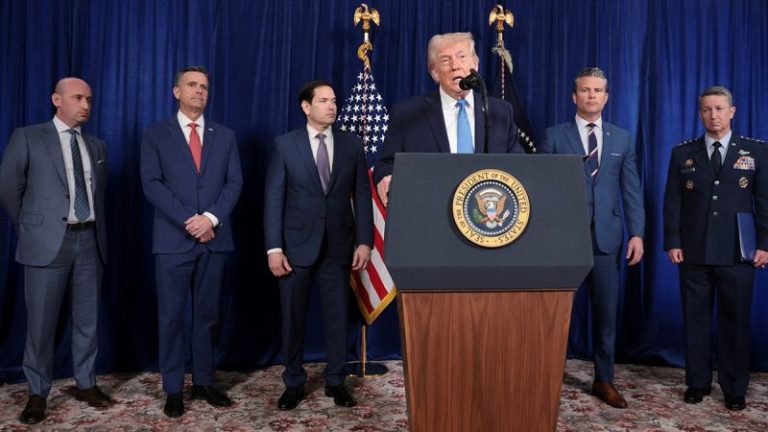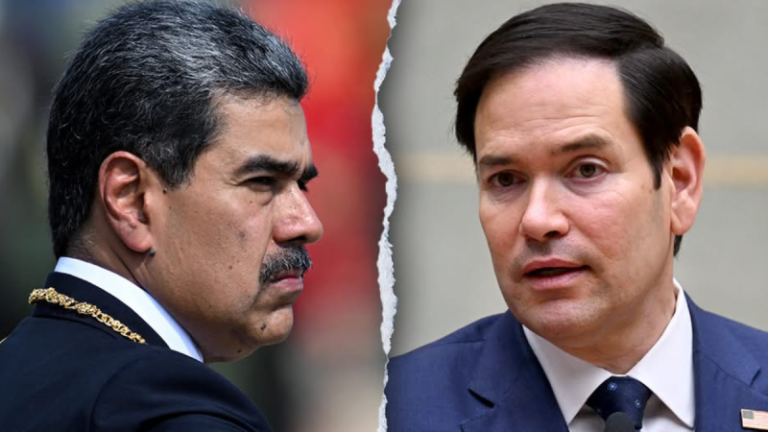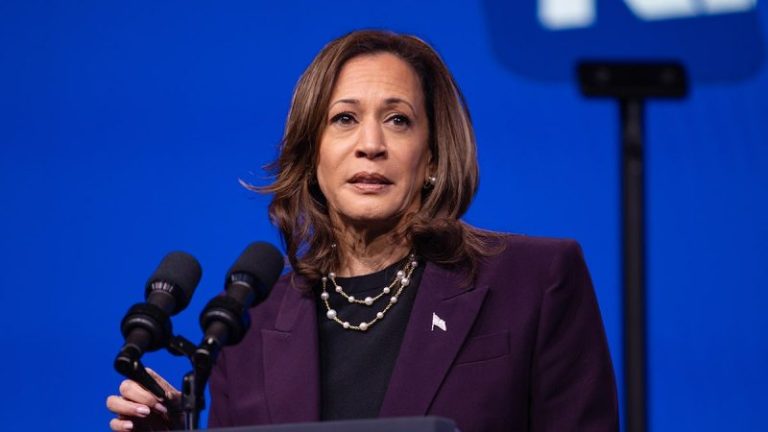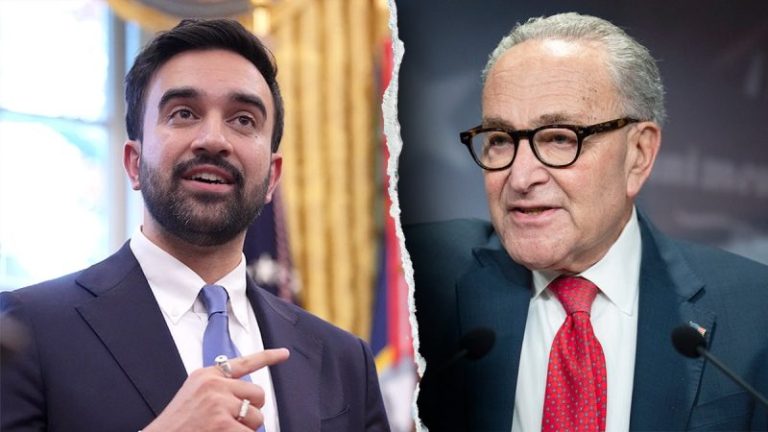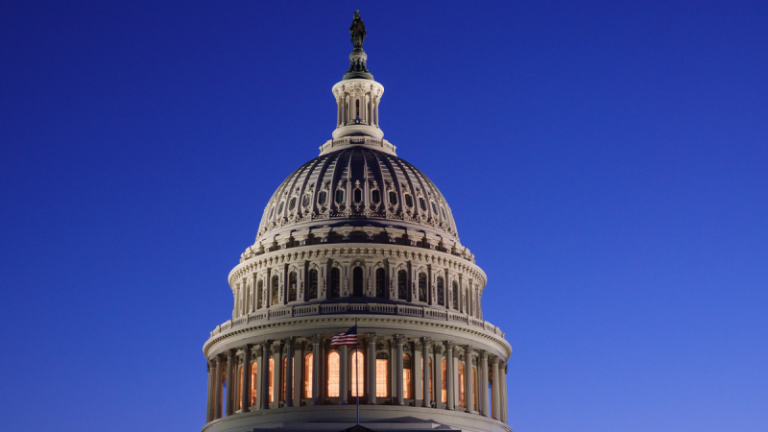If you’re still unpacking results from the 2024 election, it’s time to give up.
2026 is an election year.
Welcome to the midterms.
Health care. The economy. The ‘One Big, Beautiful Bill.’ All are factors as voters go to the polls this fall.
Democrats are trained on kitchen table issues this year. They hope that voters will forget about culture wars and have buyer’s remorse, perhaps flipping the House — and even the Senate.
‘They just don’t have enough money in their pockets to pay the bills to buy the medicine they need,’ said Senate Minority Leader Chuck Schumer, D-N.Y. ‘Costs are skyrocketing. And in 2026, you’ll be hearing from us about costs over and over and over again.’
However, Republicans are bullish on maintaining Senate control.
‘I think you’re going to see a remarkable 2026. I mean we’re excited about the prospects for the economy,’ Senate Majority Leader John Thune, R-S.D., told Bret Baier.
But Thune is cautious.
‘Typically there are headwinds in a midterm election,’ said Thune. ‘You can’t convince people of something they don’t feel.’
Retirements by Sens. Gary Peters, D-Mich., and Tina Smith, D-Minn., could create challenges for Democrats to hold those seats. Take, for example, why Republicans are spending so much time railing against Minnesota Gov. Tim Walz and Rep. Ilhan Omar, D-Minn., and the state’s welfare scandal and childcare questions. This fuels optimism that Republicans can prevail in the Gopher State.
‘President Trump was very close in Minnesota. It’s a four-point race. We know with the right candidate, we will be successful,’ said Sen. Tim Scott, R-S.C., head of the National Republican Senatorial Campaign (NRSC) to Fox News Digital’s Paul Steinhauser.
Republicans hope that Democrats nominate controversial candidates.
‘If I didn’t know better, I would say that some of these folks are Republican plants. They’re clearly from the loon wing of the Democratic Party,’ said Sen. John Kennedy, R-La., about some Democratic Senate hopefuls.
Republicans are rooting for a radioactive Rep. Jasmine Crockett, D-Texas, to secure the Democratic nod over a more moderate Democrat James Talarico — to potentially face Sen. John Cornyn, R-Texas, Texas Attorney General Ken Paxton or Rep. Wesley Hunt, R-Texas, for the Texas Senate race.
‘They tell us that Texas is red. They are lying. We’re not,’ said Crockett. ‘Y’all ain’t never tried it the J.C. way.’
Graham Platner is a Democratic populist in Maine. He hopes to face Sen. Susan Collins, R-Me. — if he’s able to defeat Gov. Janet Mills in the primary. Platner has a history of inflammatory posts online.
‘The candidate for Senate in Maine for the Democrats calls me a Nazi, which is rich, coming from a guy who literally has a Nazi tattoo on his chest,’ said Vice President JD Vance.
Platner claims he didn’t know the symbolism of the tattoo at the time. He’s since covered it up.
Sen. Jon Ossoff, D-Ga., is perhaps the most vulnerable Democrat facing re-election this cycle. Ossoff won a runoff as President Trump challenged the 2020 Georgia election results. Republicans intend to target Ossoff with his votes against re-opening the government during the shutdown.
But Democrats think they can swipe some seats from the GOP.
Sen. Thom Tillis, R-N.C., is retiring. The Tar Heel State may represent the best overall pickup opportunity for Democrats.
Former North Carolina Gov. Roy Cooper is expected to face former Republican National Committee Chairman Michael Whatley in a barnburner.
And Democrats think former Sen. Sherrod Brown, D-Ohio, might be able to return to Washington by winning the state’s other Senate seat this fall.
Brown likely faces Sen. Jon Husted, R-Ohio. Gov. Mike DeWine appointed Husted to the Senate to succeed Vance when he left the Senate and became vice president. A former Ohio lieutenant governor, Husted has never campaigned statewide for Senate.
This is why Democrats are focused on your pocketbook and health care in 2026.
‘We’re going to get it done by getting it on some piece of legislation, or we’re going to get it done by marching through into the midterms and winning,’ predicted Sen. Amy Klobuchar, D-Minn.
And the biggest factor may be who’s not on the ballot this year: President Donald Trump. Republicans saw examples of that in 2018 and 2022. Voters often see midterms as a presidential report card.
That’s possibly working against Republicans as they attempt to cling to power in the House. History is against the GOP in 2026. The President’s party customarily loses about 26 seats in the first midterm. But House Republicans aim to run on their accomplishments.
‘So far, House Republicans have passed 413 bills. This year, we’ve codified 68 of President Trump’s America First executive orders,’ said House Speaker Mike Johnson, R-La. ‘We look forward to continuing all that work when we return in 2026, and we go into an epic midterm election cycle.
Epic is right.
Republicans tried to erect a political heat shield to deflect midterm norms. Republicans drew new, GOP-friendly districts in Texas and Missouri. But those districts are a lighter shade of red. That could dilute the GOP base vote as these districts as battlegrounds.
‘We have to make sure that we’ve got an edge. This is a big deal, and we’ve gotta be politically smart. And I hate to say this, for a change,’ Rep. Jeff Van Drew, R-N.J. said on Fox News Channel.
Democrats countered the Republican maneuvering with redistricting of their own. Particularly in California.
‘Our focus is on the swing districts, the purple districts across the country,’ said Rep. Suzan DelBene, D-Wash., head of the Democratic Congressional Campaign Committee (DCCC). ‘It’s why we expanded our map of offensive opportunities.’
But it’s risky if Democrats run candidates who are too progressive for certain seats.
Democrats plan investigations and subpoenas of the Trump administration if they win the House. One Democrat is eyeing the Pentagon.
‘When we take back the House in 2026, every single one of their actions is going to be under an MRI. We’re going to evaluate them up against the laws of war. And they will be held accountable for violating those laws of war,’ Rep. Jake Auchincloss, D-Mass., told ABC News.
But House control could hinge on the Supreme Court. Around 20 House seats could shift toward the GOP if the high court unwinds part of the Voting Rights Act. That law gave Democrats an edge in multiple districts populated by minorities.
A ruling requiring new districts could drastically upset the balance of power for this year’s House contests.
This post appeared first on FOX NEWS

